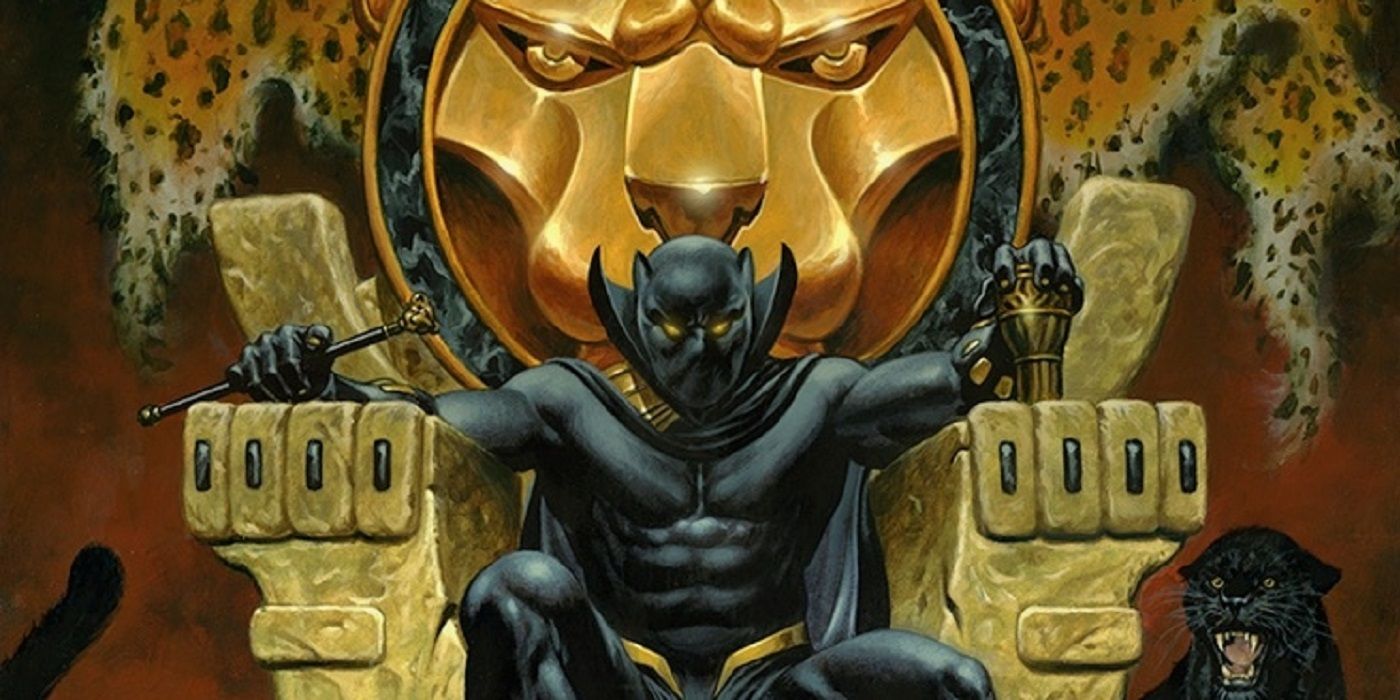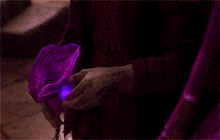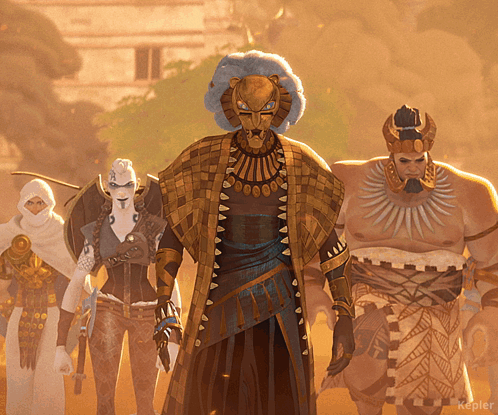Exciting New Releases: ZD Toys Collection
Exciting New Releases: ZD Toys Collection

Black Panther Timeline: From Marvel Comics to the MCU and Beyond
September 14, 2025 21 min read
Black Panther isn’t just a comic-book hero — he’s a symbol, a king, and a force of culture, strength, and change.
Born from the imaginations of Stan Lee and Jack Kirby, Black Panther first prowled the panels in Fantastic Four #52 in July 1966. His true name is T’Challa, the heir of the Wakandan throne, son of T’Chaka. Wakanda, his homeland, is no ordinary African nation: it’s a marvel of technology, powered by the rare metal vibranium, and rooted in ancient tradition.
T’Challa’s powers go beyond physical might. After a sacred ritual involving the heart-shaped herb, he gains superhuman strength, agility, senses. But he’s also a scientist, a strategist, steeped in his people’s history, trained in combat, and backed by Wakanda’s incredible resources. In 1968 he joined the Avengers, and over decades he’s alternated between being a king defending his throne and an Avenger defending the world.
Additional layers & evolution
-
In the 1970s, writer Don McGregor lifted the character into new terrain. His story arcs, especially in Jungle Action, put T’Challa against adversaries like Erik Killmonger, and mapped social tensions: the resurging Ku Klux Klan, the oppression in apartheid South Africa. These weren’t just action stories — they were political, cultural, human.
-
After a period where Black Panther was less in the spotlight, Christopher Priest’s late-’90s reboot brought him back with a sharper edge: Wakanda became not just a backdrop but a character in its own right — independent, advanced, full of intrigue. Priest introduced the Dora Milaje, elite female bodyguards drawn from all the tribes of Wakanda.
-
Then came Reginald Hudlin in the 2000s. He emphasized Black cultural pride, did more in sales, gave some spotlight to Wakandan traditions, and in that run T’Challa marries Storm (from the X-Men). He also temporarily has his sister Shuri take the mantle while he’s incapacitated.
-
More recently, in 2016 onwards, Ta-Nehisi Coates took the reins. His Black Panther run was commercially successful, critically admired, and deeper in political and philosophical questions: what does it mean to rule? Is monarchy justified? What is the relationship between tradition and progress? One of Coates’s arcs, A Nation Under Our Feet, deals with internal rebellion, legacy, and the burdens of leadership.
Cultural importance and adaptations
-
Black Panther was Marvel’s first Black superhero in the mainstream comics. That alone was groundbreaking.
-
He’s also a key figure in Afrofuturism — a blend of African diaspora culture with futuristic tech, alternate histories, imagination. Wakanda, vibranium, the mix of ritual and science — all of these elements make Black Panther one of the most visible expressions of Afrofuturism in modern popular culture.
-
On screen, Chadwick Boseman brought T’Challa to life in the Marvel Cinematic Universe (MCU), appearing in Captain America: Civil War (2016), Black Panther (2018), Avengers: Infinity War (2018), Endgame (2019), and later the animated What If…?
-
After Boseman’s death in 2020, his sister Shuri (portrayed by Letitia Wright) takes up the mantle in Black Panther: Wakanda Forever (2022). The film, among other things, wrestles with grief, legacy, and who carries the weight of these roles.
The Evolution of Black Panther: From Page to Cultural Icon
When Black Panther first appeared in July 1966 in Fantastic Four #52, readers were introduced to a character unlike anything Marvel Comics had created before. Conceived by Stan Lee and Jack Kirby, T’Challa was not only a superhero but also a king — ruler of the hidden African nation of Wakanda. With his unmatched intellect, enhanced abilities from the sacred heart-shaped herb, and access to vibranium-powered technology, he was a hero firmly grounded in both tradition and futurism.
The 1960s – A New Kind of Hero

T’Challa’s debut was historic: he became the first Black superhero in mainstream American comics. At a time when the Civil Rights Movement was still unfolding, his presence marked a radical step forward. Just two years later, in 1968, he joined the Avengers, cementing his place in the Marvel Universe.
The 1970s – Bold Storytelling and Social Relevance

The 1970s saw writer Don McGregor breathe life into the character with Jungle Action. McGregor’s stories were ambitious, weaving in layered plots and weighty social issues. His run introduced Erik Killmonger, T’Challa’s fiercest adversary, while also tackling real-world topics like the Ku Klux Klan’s resurgence in Georgia and apartheid in South Africa. These stories elevated Black Panther from superhero escapism to sharp cultural commentary.
The 1980s – Steady but Quiet Years

Through the ’80s, Black Panther remained a presence in Marvel comics but wasn’t always in the spotlight. While he appeared across Avengers storylines and occasional solo runs, his popularity wavered, and he often felt like a character waiting for his true moment.
The 1990s – Christopher Priest’s Definitive Vision

That moment arrived in the late ’90s, when Christopher Priest redefined Black Panther in a groundbreaking solo series. Priest emphasized Wakanda’s role as a politically complex, technologically advanced African nation. He gave the narrative sharper intrigue, introduced the Dora Milaje (T’Challa’s elite female bodyguards), and positioned T’Challa as a strategic mastermind. This reinvention set the template for nearly all future portrayals of the character.
The 2000s – Pride, Legacy, and New Voices

In the 2000s, Reginald Hudlin brought Black Panther back into the spotlight with stories rich in cultural pride. His run saw T’Challa marry Storm of the X-Men, a union that symbolized the blending of Marvel’s great dynasties. During this era, Shuri — T’Challa’s brilliant sister — was introduced as a key player and even took on the mantle of Black Panther while he was incapacitated. These storylines gave Wakanda’s royal family greater depth and expanded the mythos beyond T’Challa alone.
The 2010s – Ta-Nehisi Coates and Critical Resurgence

In 2016, journalist and essayist Ta-Nehisi Coates launched a new series that became one of Marvel’s best-selling books of the decade. His Black Panther examined themes of monarchy, democracy, and rebellion within Wakanda, questioning whether tradition and absolute power could truly serve a nation. Coates’s literary reputation, paired with Marvel’s growing global reach, pushed Black Panther into the mainstream spotlight like never before.
The 2020s – New Mantles, New Directions

After Coates, Marvel entrusted John Ridley (screenwriter of 12 Years a Slave) to guide Black Panther into a new chapter, exploring espionage, global politics, and T’Challa’s complicated role as both king and Avenger. Meanwhile, the character’s cinematic presence had reshaped popular culture. Chadwick Boseman’s unforgettable portrayal in Black Panther (2018) and the Avengers films turned T’Challa into a worldwide icon of strength, dignity, and Afrofuturism. Following Boseman’s passing in 2020, Marvel Studios carried the legacy forward with Black Panther: Wakanda Forever (2022), where Shuri (Letitia Wright) took up the mantle, echoing her comic-book journey.
Legacy and Impact
Black Panther’s story is one of resilience — both on and off the page. From his groundbreaking debut in the ’60s to his cultural renaissance in the 21st century, T’Challa has come to embody themes of leadership, heritage, and identity. As the first Black superhero in American comics and one of the most prominent figures in Afrofuturism, Black Panther is more than a character; he is a movement, a mirror of the times, and a vision of the future.
T’Challa — Not Just a King, but a Complex Hero

T’Challa was born in Wakanda, son of King T’Chaka and Queen N’Yami. His mother tragically died in childbirth, and after her death, T’Chaka married Ramonda, who later gave birth to Shuri. Ramonda himself disappears under mysterious circumstances down the line. From an early age, T’Challa’s life is woven with responsibility, loss, ritual — the kind of challenges that shape a person rather than break them.
In Wakandan tradition, when the time comes, young challengers compete in ritual contests — to prove strength, worth, heart. T’Challa earns the right to eat the heart-shaped herb, which gives him super-strength, heightened speed, senses, and all the other “super-human” gifts that mark the Black Panther. When he does this, it’s not just about physical power — it’s an inheritance, a mantle, a weight.
One of his earliest enemies is Klaw (also known as Ulysses Klaw), driven by greed for vibranium — the rare metal that makes Wakanda unique. In a tragic turn, Klaw kills T’Chaka. That loss shapes T’Challa’s sense of justice, his burden as both ruler and protector.
His journey takes him abroad — to schools like Oxford, to travels all over the world. He learns diplomacy, science, culture. He builds alliances, befriends people (Storm among them), and sees how the world views Wakanda — often misunderstanding it, often being dangerous to what Wakanda stands for.
Back in Wakanda, he confronts internal and external threats: Erik Killmonger — one of his most powerful adversaries — challenging T’Challa for the throne, trying to upend Wakandan tradition; morally ambiguous foes who force him to question whether preserving tradition, keeping Wakanda secret, always serves justice.
He also nurtures relationships: with his sister Shuri (brilliant, fierce, a partner in leadership), with allies like Everett K. Ross, with the Dora Milaje (Wakanda’s elite female protectors), and romantically with people like Nakia and Storm. These relationships are rarely simple — often marked by guilt, conflicting duties, mistakes, betrayals, but also deep loyalty and love.
At times T’Challa suffers physical or mental trauma — brain aneurysms, hallucinations, loss of powers, even being replaced temporarily by Shuri. He gives up power, goes into exile, returns. Always, though, there’s the drive to protect not just the land of Wakanda, but its people, its heritage, and its future.
Personality, Motivations & What Makes Him Tick
-
T’Challa is not your “hero first, king later” type. The kingly and political side of him is integral, always in tension with the superhero side. He’s expected to govern, to lead morally and practically. Defense of Wakanda is his first responsibility.
-
He is extremely intelligent — a scientist, strategist, diplomat. He thinks ahead. He prepares. Stealth, negotiation, science, politics — as much a part of his toolkit as claws and combat.
-
Emotionally, he is often torn. Between tradition and progress. Between secrecy (for protection) and openness (for responsibility). Between personal desires and public duty. Between the past (his father’s legacy, Wakandan customs) and the future (what Wakanda could become).
-
He is deeply proud of his heritage but also aware of its flaws and contradictions. He is willing to change however painful that process is.
-
Since later writers (like Ta-Nehisi Coates) have taken up his story, those tensions have been explored more explicitly — questions of monarchy vs democracy, of what it means to lead a country with extraordinary power and secret resources, of how much one owes to one’s people, how much to the world.
Some Extra Details & More Recent Additions
-
According to Marvel’s official profile, Wakanda is quite isolated traditionally, but T’Challa often ventures beyond its borders. He believes Wakanda should both protect itself and engage with the world.
-
Wakanda’s vibranium doesn’t just give wealth — it shapes the very culture, tech, politics of the nation. So protecting vibranium isn't just economics; it’s protecting the essence of what Wakanda is.
-
Marvel describes T’Challa as among the top intellects in the Marvel Universe — his capacity for strategy, diplomacy, leadership are often compared with the strongest minds.
-
One recent thing: there’s been speculation and discussion around recasting T’Challa in the MCU, following Chadwick Boseman’s death, which reflects how emotionally invested people are in both the character and the actor’s portrayal.
Powers, Abilities & Equipment — What Makes Black Panther Truly Exceptional

T’Challa isn’t just strong because Wakanda has vibranium; he’s strong because he is Wakanda in many ways. His powers, gear, and instincts combine to make him one of Marvel’s most rounded and fascinating heroes.
Natural Gifts & the Heart-Shaped Herb

Long before high tech, T’Challa’s core powers come from the heart-shaped herb, a sacred Wakandan plant that only royal Black Panthers can ingest. Through it, he gains:
-
Superhuman strength, stamina, durability, speed, reflexes, healing and endurance.
-
Enhanced senses — sharper sight (including at night), heightened hearing, an acute sense of smell, etc.
These are not just “powers for fighting”; they shape who he is — the vigilance, the reflexes, the awareness. Without them, he’d be formidable but fundamentally different.
Training, Intelligence, and Combat Skill

Beyond the supernatural: T’Challa is one of the best hand-to-hand fighters in the Marvel Universe. He trains constantly; he studies abroad; he travels. He is a strategist, a diplomat, a scientist. All these form parts of his strength. Even when his powers are neutral or limited, he’s dangerous because of his mind and how he uses what he has.
The Panther Suit & Vibranium Technology — Wakanda's Crown Jewel

His gear is what amplifies him from “exceptional hero” to “legend”. The Black Panther suit (often called the Panther Habit) is more than armour; it’s a living, evolving tool that blends tradition and cutting-edge tech. Recent expansions of the lore have revealed more and more clever features:
| Feature | What it does / Why it matters |
|---|---|
| Vibranium micro-weave mesh | The fabric of the suit can absorb heavy impacts — bullets, falls, punches — by absorbing the kinetic energy. The metal disperses that energy so T’Challa doesn’t break, and in many cases he can store this absorbed energy for later use. |
| Kinetic energy absorption & redirection | T’Challa can take blows or hits, store some of the energy in the suit, and then release bursts of that energy in attacks or pulses. This gives him an edge not just defensively but also offensively. |
| Retractable claws & anti-metal capabilities | The claws are vibranium. Some versions of them use special vibranium or alloys capable of cutting through almost any metal. Great for close-quarters combat. |
| Augmented senses via technology | The suit’s mask or lenses help him see in ultraviolet or infrared, help with night vision, reduce glare. Combined with his natural enhanced senses, this makes him excellent at tracking, stealth, detection. |
| Energy-dampening boots & soles | Vibranium in the soles helps with falls (absorbing shock), allows stealthy movement, helps with jumping, maybe wall-scaling, sometimes even traversing water in special cases. |
| Camouflage / stealth mode | The suit can adapt visually or through tech to reduce visibility / detection. Useful for infiltration, surprise attacks, avoiding detection. |
| Communications, tracking & other gadgetry | The mask or suit often include communications gear. T’Challa has the Kimoyo Card (or equivalents) to track, monitor, get data, coordinate with Wakandan tech networks. He can also track vibranium-based signatures. |
Unique Strengths & Limitations
-
Because he is king, and Wakanda is one of the world’s most advanced nations, he doesn’t just have access to gear — he has all of Wakanda’s resources. That means labs, scientists, vibranium mines, traditions, ancestral knowledge. It gives him more flexibility and more weight in decisions than many heroes who fight with limited means.
-
He often has to balance two roles: protector/warrior, and monarch/leader. Sometimes his gear or powers are limited by political, ethical, or internal Wakandan constraints. He may choose not to use maximum force because of consequences to his people, to their traditions, to his own moral code.
Newer & More Surprising Abilities
From more recent stories and media (movies, comics) we find some extensions of his powers that go beyond the classic descriptions:
-
Spirit-energy weapons / mystical abilities: In some comic arcs, T’Challa becomes “King of the Dead,” gaining powers connected to his ancestors or spirit plane. He can generate weapons made of spirit energy, or enter realms beyond the physical world. This adds a mystical dimension.
-
Massive energy release / pulse attacks: The stored kinetic energy from the suit can be released in powerful non-lethal or lethal pulses, sometimes to repel multiple attackers or overwhelm a strong foe.
-
Adaptability: The suit, and Wakandan tech in general, often gets upgrades. There are versions of the suit designed for special threats — for example, Hulk-buster-like enhancements, environmental protections, etc. It’s not static. T’Challa and Shuri are always finding new ways to improve it.
What Makes T’Challa More than Just the Suit
![Oblivion [Black Panther / T'challa Udaku]](https://i.pinimg.com/originals/37/7c/69/377c6963902824d144181a2c3f3907f8.gif)
It’s often easy to think of Black Panther purely in terms of his powers and tech, but that misses half the picture.
-
He has moral weight: the decisions of a king, bearing responsibility for lives. His strength is not just physical but ethical: what does it mean to protect, when secrecy or fear might be useful but might also hurt?
-
His intellect is always in play: not only is he strong, but he outthinks enemies, plans ahead, makes alliances, handles diplomacy, science.
-
His culture and heritage give context: the heart-shaped herb, the ancestral connections, the Wakandan tradition, the goddess Bast — they aren’t just flavor, they carry emotional and spiritual weight, which sometimes offer powers or insights that go beyond raw strength.
Themes & Motifs in Black Panther: Pride, Power, and Becoming
Black Panther isn’t just about fights and super-powers. Underneath all the action are ideas about identity, power, history, and what it means to belong and lead. Some of its strongest currents include racism and Black pride, colonialism and decolonization, and the transformation (and fragility) of the human body. Here’s a reanimation of those concepts, with some newer reflections.
1. Racism & Black Pride
-
Though the earliest writers were white (Lee & Kirby), later Black creators — Christopher Priest, Reginald Hudlin, Ta-Nehisi Coates — used Black Panther to hold up a mirror to racism, stereotypes, and the longing for respect and dignity. They didn’t just fight supervillains; they questioned assumptions.
-
A good example is Everett Ross, who often represents the “outsider” view: well-meaning but steeped in unconscious prejudice. Through him, comics show microaggressions — how even harmless ignorance can hurt and reinforce stereotypes.
-
During Hudlin’s period especially, T’Challa becomes a symbol of Black excellence. Hudlin, among others, positions him as “the best” not just physically/politically but morally — a hero who refuses to accept caricatures, who loves and leads with pride.
2. Colonialism, Decolonization & Afrofuturism
-
Wakanda is imagined as a nation that was never colonized — a powerful counter-image to many African nations’ historical realities. This idea alone carries huge weight: it asks us to imagine what Africa might have been (or could be) in the absence of colonial disruption. Scholars see the very idea of Wakanda as central to what Afrofuturism means: a reclamation of history and possibility.
-
More recent writers have pushed this further, exploring not just “never colonized” in mythic terms but also the challenges of maintaining sovereignty, justice, and equality inside that myth. How do you keep the people safe? How do you balance a monarchy with calls for democracy? These are not abstract questions in Coates’s Black Panther: A Nation Under Our Feet, for example.
-
The tension between tradition vs progress, isolation vs engagement with the world, and monarchy vs democracy become motifs. How much power should a king have? What burdens does leadership carry? These are political, moral, and personal questions.
3. Body, Vulnerability, & Transformation
-
One of the striking things about Black Panther stories is how they show that being super isn’t being invincible. In earlier stories (e.g. McGregor’s Jungle Action), T’Challa suffers, his costume gets torn, he confronts physical limits, enduring pain. These moments humanise him.
-
On the other hand, later runs lean into his near-invincibility (especially with tech upgrades, vibranium armor). The juxtaposition of vulnerability and power becomes a motif: even “strong” people break, even “protected” people are vulnerable if their ideals, relationships, or culture are threatened.
-
Also, transformation isn’t just physical: mental struggle, cultural identity, moral crisis — these are shown as part of his growth. E.g., T’Challa’s grappling with what monarchy means, with how Wakanda must change, and with his responsibilities to people who question him.
Newer Reflections & Developments
From recent comics and commentary, here are some expanded or newer theme-threads:
-
Monarchy vs Democracy: Coates in A Nation Under Our Feet explicitly grapples with whether Wakanda should remain an absolute monarchy. The popular will, discontent, questions of justice and representation become central. The people begin to demand not just performance but accountability.
-
History Matters — Memory & Myth: A recurring motif is that T’Challa cannot move forward unless he reclaims the past — ancestral memory, myths about origin (for example, the vibranium meteor, the Panther god Bast). When the history is forgotten or mythologised, problems arise. Once he faces what Wakanda really is (not the idealized version), only then can he lead change.
-
The Price of Power & Isolation: Having vibranium, having advanced tech, being uncolonized — all create opportunity but also danger. Isolation, secrecy, or hoarding power for protection can breed resentment, vulnerability from within, or moral contradictions. These have become more central in recent story arcs. Coates explores how Wakanda’s privileges also impose duties.
-
Female Agency & Inclusion: More recent authors emphasize the roles of women not as sidekicks but as political actors, moral challengers, warriors (like Shuri, Dora Milaje, Ramonda, Nakia). Themes of feminism, gender politics, leadership, and moral judgment from female characters are stronger than in many earlier runs.
The Black Panther Legacy: Family, Allies, and Enemies
The mantle of the Black Panther is more than a superhero title—it is a sacred duty, passed down for generations among Wakanda’s royal lineage. Empowered by the Panther God Bast and strengthened by the mystical Heart-Shaped Herb, each Black Panther becomes both protector and ruler of the most technologically advanced nation in Africa.
The Black Panther Family Tree
The legacy stretches back thousands of years:
-
Mosi, the Black Panther of 1,000,000 BC – The very first Black Panther chosen by Bast. He joined the Avengers of 1,000,000 BC to face cosmic threats like the Celestials. His sacrifice led to Wakanda’s isolationist traditions.
-
Olumo Bashenga – The first King of Wakanda after discovering Vibranium. He established the Panther Cult and united the tribes under his rule.
-
Azzuri the Wise (T’Chanda) – T’Challa’s grandfather, remembered for repelling Nazi forces during World War II and battling alongside Captain America. Unlike his grandson, Azzuri distrusted outsiders deeply.
-
T’Chaka – T’Challa’s father, killed by Ulysses Klaw. His reign emphasized protecting Wakanda’s secrets.
-
T’Challa – The modern Black Panther, known for balancing tradition with progress and for being Wakanda’s voice on the global stage.
-
Shuri – T’Challa’s sister, brilliant scientist, warrior, and a Black Panther in her own right after T’Challa’s incapacitation.
-
Azari – Son of T’Challa and Storm in an alternate timeline, carrying forward the heroic mantle in Earth-555326.
-
T’Challa II – Introduced in the MCU as T’Challa and Nakia’s son, symbolizing hope for Wakanda’s future.
Other notable ancestors include Nehanda, the first woman to take the mantle and founder of the Dora Milaje, Benhazin, whose reign brought internal strife, and Mamadou Fall, the only Jabari to become Black Panther.
Immediate Family
-
N’Yami – T’Challa’s birth mother, who died in childbirth.
-
Ramonda – T’Challa’s stepmother and Shuri’s mother, a constant pillar of wisdom.
-
S’Yan – T’Challa’s uncle, who briefly ruled before yielding to his nephew.
-
Jakarra – T’Challa’s half-brother, who tragically transformed into a Vibranium-mutated monster.
-
Hunter, the White Wolf – T’Challa’s adopted brother, who later led Wakanda’s controversial secret police, the Hatut Zeraze.
Love and Relationships
T’Challa’s heart has been pulled in many directions:
-
Monica Lynne – A jazz singer and his longest-standing love, who saved his life.
-
Storm (Ororo Munroe) – His most famous partner, the mutant goddess of weather and X-Men member. Their marriage united two of Marvel’s most iconic dynasties but was annulled during the Avengers vs. X-Men conflict.
-
Nakia (Malice) – Once loyal Dora Milaje, she became corrupted by obsession and transformed into a villain.
-
Queen Divine Justice – A Chicago-born warrior and secret heir of the Jabari, who fought as one of the Dora Milaje.
Allies and Mentors
-
Everett K. Ross – A U.S. diplomat who became T’Challa’s unlikely friend and comedic foil.
-
The Dora Milaje – Elite warrior women sworn to protect the throne. Figures like Okoye, Aneka, and Ayo have become leaders in their own right.
-
Zuri – A seasoned warrior and trusted adviser, deeply loyal to T’Chaka and T’Challa.
-
Changamire – A philosopher whose criticism of monarchy influenced Wakanda’s political rebels.
Pantheon and Spiritual Ties
The Black Panther is spiritually bound to Bast, the Panther Goddess, who guides Wakanda’s rulers and tests their worthiness. Alongside Bast, the Orisha Pantheon represents Wakanda’s balance of faith, magic, and politics.
Alliances Beyond Wakanda
-
The Avengers – T’Challa was the first Black superhero to join the team, often torn between global responsibility and Wakanda’s isolationism.
-
The Fantastic Four – Tested by T’Challa, they became his early allies against Klaw and Doom.
-
The X-Men – Connected through Storm, Wakanda has fought alongside mutants against world-ending threats.
-
The Illuminati – Though skeptical, T’Challa joined this secret group to prevent multiversal collapse.
Enemies of the Panther
Wakanda’s wealth and secrecy have drawn countless enemies:
-
Ulysses Klaw – The murderer of T’Chaka and T’Challa’s archenemy, who weaponizes sound.
-
Erik Killmonger (N’Jadaka) – A revolutionary who challenged Wakanda’s monarchy, embodying rage at oppression and exile.
-
Doctor Doom – Manipulated Wakanda’s politics in his bid for Vibranium.
-
Achebe – A chaotic villain who sold his soul to Mephisto, embodying madness.
-
Namor – The ruler of Atlantis, whose rivalry with T’Challa escalated after he devastated Wakanda with a tidal wave.
-
Man-Ape (M’Baku) – Leader of the Jabari, both rival and reluctant ally.
-
The Desturi – Xenophobic nationalists who opposed Wakanda’s modernization.
Cultural Legacy
The story of the Black Panther is more than just a superhero myth. It embodies Afrofuturism, blending African tradition, spirituality, and advanced technology into a vision of Black excellence uncorrupted by colonialism. Through family, allies, and rivals, T’Challa’s story explores themes of legacy, power, identity, and the responsibility of leadership.
Wakanda’s kings and queens stand not just as rulers of a nation, but as symbols of resilience and cultural pride.
Cultural Impact & Legacy — How Black Panther Changed the Conversation
When Black Panther (2018) hit the screen, it didn’t just pull audiences into a superhero story. It cracked open doors: of identity, representation, imagination, pride—and the power of seeing something new. It turned from a comic‐book character into a cultural force.
Visibility & Representation
-
For many Black viewers, T’Challa was the hero they’d been waiting for: regal, intelligent, powerful—not reduced to “sidekick” or stereotype. Seeing a Black king, surrounded by flourishing culture, women with agency, science and tradition working together—it sent a message.
-
Critics praised the movie as a gorgeous celebration of black culture. For example, Vox called it “groundbreaking” for how it showcased African design, rituals, women, and identity in ways rarely permitted in big studio superhero films.
-
Costume designer Ruth Carter and others worked deeply to avoid clichés, drawing inspiration from real African aesthetics—clothing, hair, tribal patterns—integrated with futuristic tech to craft Wakanda. That combination felt both aspirational and rooted.
Impact Beyond the Story
-
Box office was massive. Black Panther crossed $1 billion globally, making it one of the highest-grossing Marvel films, and marking a milestone for films with predominantly Black cast and crew.
-
The film shifted perceptions. It put a new version of Africa into the mainstream imagination—one not of poverty or struggle only, but of innovation, mystery, beauty, hope. Audiences saw a nation untouched by colonialism, wealthy in technology, art, community. That’s a powerful counter-narrative. Irreview and other cultural writers have noted how Wakanda challenged many old tropes about sub-Saharan Africa.
Academic & Critical Recognition
-
Scholars and commentators have recognized Black Panther as more than entertainment—it’s a text to be studied: for race, for diaspora, for identity, for speculative futures. For example, SFRA Review (2024) argues that Black Panther “centralizes African culture, traditions, and characters in a way that no large-scale American film about the continent has ever done.” SFRA Review
-
In the world of publishing, Penguin Classics released a deluxe anthology in 2022 that reprints seminal and foundational Black Panther comics: the origin stories (from Fantastic Four #52-53) and the full “Panther’s Rage” arc from Jungle Action (1973-76). The edition includes forewords and analyses from today’s writers and scholars (Nnedi Okorafor, Qiana J. Whitted, etc.), acknowledging Black Panther’s lasting artistic and cultural importance. PenguinRandomhouse.com+2Atomic Books+2
Themes People Keep Watching & Learning From
-
Afrofuturism became a way to talk about what Black Panther does—it blends tradition and tech, myth and science, rootedness and possibility. The idea of Wakanda as an uncolonized, sovereign, advanced African nation resonates deeply.
-
Conversations about diaspora, inequality, identity, colonial histories have deepened. Villains like Killmonger sparked debates: what is justice, who gets to tell history, how do we confront legacies of oppression? These are not simple “comic book” texts—they became entry points for real-world discussions.
Legacy & Ongoing Influence
-
The character’s presence in popular culture goes beyond screens—cosplay, fashion, music, art. Kids wear the costume; communities use the symbols. The Wakanda salute became something people adopt because it signifies pride, respect, unity.
-
Ultimate Black Panther, a 2024 comic series, shows how the character continues evolving. It explores new threats, new moral dilemmas, new versions of legacy. It shows that Black Panther isn’t “stuck” in 1966 or 2018 but is alive and changing.
-
Academically and culturally, he’s become part of curricula in schools talking about race, identity, film studies; part of discussions in art and comic history; part of movements that say “representation matters.”
What It Means Today
Black Panther proved that representation isn’t just about seeing Black faces—it’s about seeing rich, multidimensional Black life: leadership, struggle, hope, complexity. It showed how myth and fantasy can empower real people to imagine better futures.
Even now, its legacy lives in younger creators inspired to tell their own stories, in fans demanding authenticity, in studios realizing that diverse stories sell, resonate, are necessary.
Black Panther Beyond the Comics — From Screen to Streaming
Black Panther Off the Page — Films, TV, Games & More
Since leaping off the comic-book pages, Black Panther has become a vivid presence across many kinds of media. Almost every adaptation adds another layer to T’Challa, Wakanda, and what they mean to people around the world.
Big Screen & Marvel Cinematic Universe
-
The 2018 Black Panther film, directed by Ryan Coogler and starring Chadwick Boseman, was a watershed moment. It wasn’t just another superhero movie — it broke cultural, commercial, and awards ground.
-
Boseman also played T’Challa in Captain America: Civil War (2016), Avengers: Infinity War (2018), and Avengers: Endgame (2019).
-
After Boseman’s death, his character appears in alternate timelines in the Disney+ series What If…?.
-
In Black Panther: Wakanda Forever (2022), Shuri (Letitia Wright) assumes the mantle of Black Panther, honoring the legacy while pushing it forward.
On TV & Animation

Over decades, Black Panther has appeared in many animated series. Some highlights:
-
Fantastic Four (animated) — the earliest television adaptation of T’Challa.
-
The Avengers: Earth’s Mightiest Heroes and Avengers Assemble — where T’Challa’s role is often as ally, leader, and strategist.
-
Spidey and His Amazing Friends — a lighter, child-friendly version of the character.
New & Notable: Eyes of Wakanda (2025)

Here is some fresh and exciting stuff:
-
Eyes of Wakanda is a new animated miniseries (4 episodes), released August 1, 2025 on Disney+.
-
It is part of Phase Six of the MCU.
-
The artists went for a hand-painted animation style, inspired by African-American artists like Ernie Barnes and illustrator Dean Cornwell.
-
The story follows the Hatut Zeraze, a secret elite group of Wakandan warriors, sent on dangerous missions through history to recover vibranium artifacts from enemies of Wakanda.
-
Among its cast: Winnie Harlow, Cress Williams, Anika Noni Rose, Lynn Whitfield, and more. Some characters are new, like Noni and The Lion.
-
One interesting twist: the series introduces a new version of Iron Fist (not the classic Danny Rand), expanding Wakanda’s lore and the MCU’s mystical/historical threads.
Games & Cancelled Projects

-
Black Panther has featured in many games over the years — as playable character, cameos, DLCs, etc.
-
There was a plan for a single-player Black Panther video game by a newly formed studio called Cliffhanger Games (under EA). The idea was ambitious: open-world, deep Wakandan lore, action-adventure style.
-
However in 2025, EA cancelled that project and shut down Cliffhanger Games.
Why This Matters
-
Each new adaptation deepens the world of Wakanda — its past, its culture, its unseen corners. Eyes of Wakanda, for example, lets us see Wakanda across time, not just its present in the films.
-
Changes in medium (film, TV, animation, games) let creators play with different tones: from epic drama to myth to child-friendly heroism.
-
The cancelling of the game shows the fragility in turning beloved intellectual property into media: even big names and high potential don’t guarantee a project sees the light of day.
From his groundbreaking debut in the 1960s to his evolution across comics, films, animation, and games, Black Panther remains more than a superhero — he is a cultural icon who bridges heritage, identity, and Afrofuturist imagination. With every new story, from Black Panther: Wakanda Forever to Eyes of Wakanda, the legend of T’Challa and Wakanda continues to inspire generations worldwide.
Whether you’re drawn to his rich mythology, his role in shaping representation in pop culture, or his impact on modern storytelling, one thing is certain — Black Panther’s legacy is only growing stronger. Wakanda Forever! Check out our extensive collection of Black Panther Action Figures, statues, toys and more at our store now available at upto 40% off! Click here to avail the offer.
Subscribe
Sign up to get the latest on sales, new releases and more …
